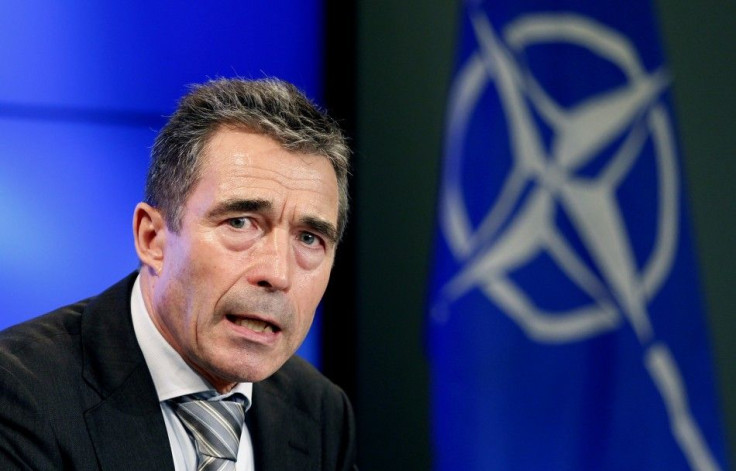Pakistan's Invitation To NATO Summit May Hinge On Decision To Open Supply Lines

Afghanistan will be the focus of a crucial NATO security summit in Chicago this month, said NATO Secretary General Ander Fogh Rasmussen during a press conference on Friday. But Pakistan, once a crucial partner in NATO's efforts there, may not be represented at the event.
The summit, which is scheduled for May 20-21, will involve over 60 heads of state, making it the largest summit in NATO history. Discussions will center on the NATO-led International Security Assistance Force (ISAF) mission in Afghanistan, and attendant parties will attempt to negotiate a timeline for troop withdrawal.
Currently, about 130,000 NATO troops from over 50 different nations are serving in Afghanistan. These forces are working to equip and train the Afghan National Security Forces, which has about 164,000 members, so that it can maintain order and defend Afghanistan against insurgencies, al Qaeda attacks and other threats.
NATO hopes to officially end the ISAF mission in 2014, though some troops will remain in Afghanistan as a stabilizing presence indefinitely.
Regarding the Chicago summit, Rasmussen stressed that NATO had invited every nation that contributed significantly to the ISAF mission. The list of attendees includes such diverse states as Jordan, Japan, Morocco, and Russia.
Rasmussen also confirmed that China, India and Israel will not be in attendance. He denied that any of those omissions were politically motivated, claiming that no one has blocked an invitation, because it's not been an issue.
When one reporter raised a question about Pakistan and the Taliban, Rasmussen explained that Pakistan was not considered a significant contributor to ISAF efforts. He stopped just short of explicitly confirming that Pakistan had not been invited.
Actually, we have done a lot to develop a strong relationship, strong partnership, strong cooperation with Pakistan, said Rasmussen.
As I mentioned, we have actually invited a number of countries from the region, neighbors of Afghanistan, Central Asian countries, Russia, because they provide important transit arrangements to the benefit of our operation. But as you also know, our transit routes through Pakistan are currently blocked. So we have to continue our dialogue with Pakistan with a view to finding a solution to that, because that's really a matter of concern.
Land supply routes through Pakistani territory have been vital to the NATO mission. But Pakistan shut down that route last November, when U.S. drone strikes inadvertently killed 24 Pakistani troops. The incident constituted a major blow to the shaky alliance between the two countries, and a diplomatic impasse between the United States and Pakistan has kept the important routes closed for about six months.
In April, however, a motion to re-open NATO supply lines was approved by Pakistan's parliament. Cabinet members are expected to meet on Tuesday to discuss the idea further.
The meetings will discuss whether Pakistan should reopen the NATO supply route or not, and if Islamabad should attend the upcoming NATO summit in Chicago, said one Islamabad official to AFP.
If that meeting results in a decision to allow NATO troops to utilize the contested supply routes, Islamabad officials may yet receive an official invitation to the Chicago summit.
© Copyright IBTimes 2024. All rights reserved.






















